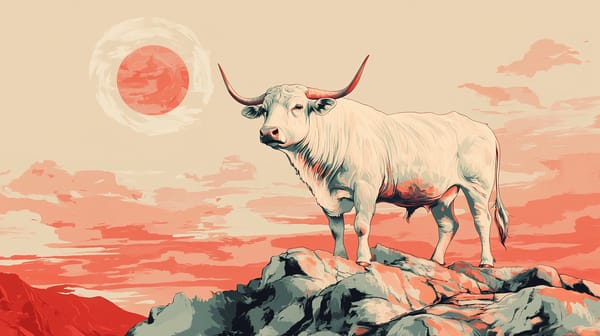DAOs: The Future of Organizational Structures or Utopian Idealism?

The eruption of decentralized autonomous organizations (DAOs) represents one of the most radical upheavals in economic coordination since the joint stock company. Enabled by blockchain-based coordination and incentive mechanisms, DAOs allow groups to self-organize around shared goals without traditional corporate trappings. As DAO adoption spreads across industries, debates intensify around balancing their democratizing potential with risks.
DAOs take guidance from their name - they are decentralized networks, lacking central leadership. Member voting rights powered by tokens on governance decisions drive organizational direction. Smart contracts encode financial transactions and programmatic rules allowing transparency in treasury management and contribution tracking tied to "shares" represented as crypto tokens.
This structure incentivizes meritocracy, allowing anyone that meaningfully furthers DAO objectives to gain influence and rewards via reputation-based token allotments. Early DAOs have focused on domains like investing, charity, media, and even DAO creation itself but expand in scope daily. Some label DAOs as the future of work - a more open, permissionless means to coordinate specialized talent and scale ambitious projects.
However, incidents like the 2016 collapse of The DAO on Ethereum showcase drawbacks surrounding security, loose control mechanisms, and legal uncertainty that compound as DAOs grow. Critics point to CODEA, a climate action group DAO which imploded this year over internal disputes, highlighting risks of gridlock when coordination breaks down. Additionally, loose token distribution qualifying as securities may lead regulators like the SEC to intervene around investor protections.
Complex debates now unfold on balancing the democratized participation DAOs offer with reasonable safeguards against hostile takeovers, technical failures, and factionalism. Solutions like reputation-weighted voting on critical issues take cues from protocols like one-person, one-vote to equilibrium models resembling modern representative democracy. Hybridized structures seeing fluid collaboration between DAOs and legacy corporations may also emerge.
Ultimately, DAO technology remains highly experimental. The model trades efficiency and consolidated control for open access and radical transparency - whether sustainable at scale is unproven. To critics, DAOs represent a techno-libertarian pipe dream destined to crumble absent accountability mechanisms. But to proponents, DAOs transform outdated centralized governance into fluid, permissionless innovation that advances based on demonstrated value rather than status.
Early DAO success stories like MakerDAO in stablecoin management and PleasantDAO in gaming real estate investment showcase the momentum around interfacing Web3 services with tokenized governance systems. However, reasonable skepticism exists on trajectories given the nascency. As algorithms, incentive designs, security audits, and regulatory guidance mature, DAOs may yet emerge as an asset class enabling crowd-powered generators of public goods. Or they may fizzle as idealistic test cases unable to balance coordination needs with individual liberties in real-world constraints.
Either way, the emergence of DAOs signals deep disenchantment with institutional trust deficiencies across public and private sector hierarchies. Much as Bitcoin manifests digital scarcity amidst central bank quantitative easing, DAOs reflect yearning for transparent, accessible and democratic participation largely lacking in modern economic systems. These sentiments will unlikely abate even if initial versions of distributed governance falter.
Perhaps the most accurate frame lies between extremes of heralding a utopian workplace revolution and dismissing DAO pursuits as fanciful distractions. DAO technology expands tools to incentivize, coordinate and quantify value production in unique ways. It introduces radical transparency where rewards directly tie to measurable individual and collective actions rather than office politics or red tape. In the process, DAOs unlock more granular understandings of what motivates human cooperation using market principles.
While still unrefined, DAOs have jolted stagnant assumptions on corporate structure much as cryptocurrencies have challenged ossified banking and monetary systems. Rather than Anti-Capitalist, the emerging model introduces new means to engineer grassroots, voluntary value creation and exchange. DAO pioneers drive the biggest field experiments in incentive design, attracting talent to reach ambitious goals without authoritarian decree. The coming years will reveal whether cooperative self-governance at global scale lives up to promises as DAOs pass through their volatile adolescence into maturity or fade as distracting digressions. Either way, Pandora’s box is open, and economic coordination may never be quite the same.





